Volunteers Mount Their Bikes to Tackle Poor Nutrition in Zambia
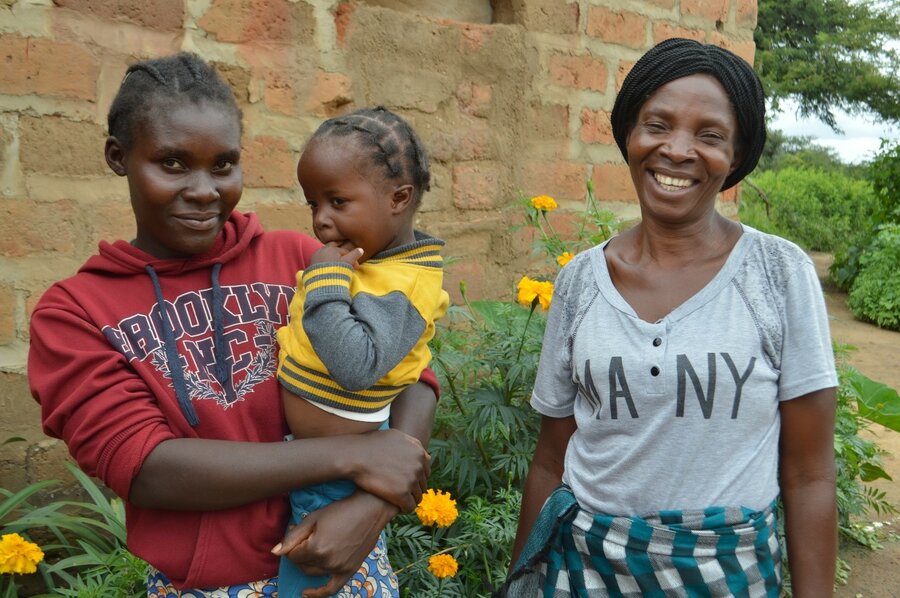
Sustainable, simple and safe — Bicycles are an environmentally clean solution to COVID-19 transportation lockdowns while boosting personal wellness. On World Bicycle Day, we’re pedaling back to the story of Clara to see how bikes from WFP are facilitating community leadership and nutrition education.
Every day, Clara goes door-to-door to gather local caregivers for their weekly nutrition meetings. The 52-year-old single mother lives with her five children and granddaughter in Mazabuka, Zambia — a country with one of the highest rates of malnutrition in the world.
Clara is at the forefront of the fight against malnutrition, and is one of 480 trained community health volunteers trained by the United Nations World Food Programme (WFP) to spread the word about the importance of good nutrition.

A single mother, Clara lives with her five children and granddaughter.
“I’m responsible for educating around 200 to 300 people in my village. But transport is an issue, it’s difficult to reach people far away from my home,’’ she says.
The coronavirus pandemic has hampered Clara’s work. Afraid of catching the virus, many members of her community have stopped attending the weekly nutrition meetings.
“I’ve been conducting household visits as people no longer want to attend group meetings. However, I only have time to visit around two to three households per day,” says Clara.
To ensure volunteers like Clara can still reach their communities and relay vital health messages, the U.N. World Food Programme is distributing bikes and training manuals to community health volunteers across Zambia.
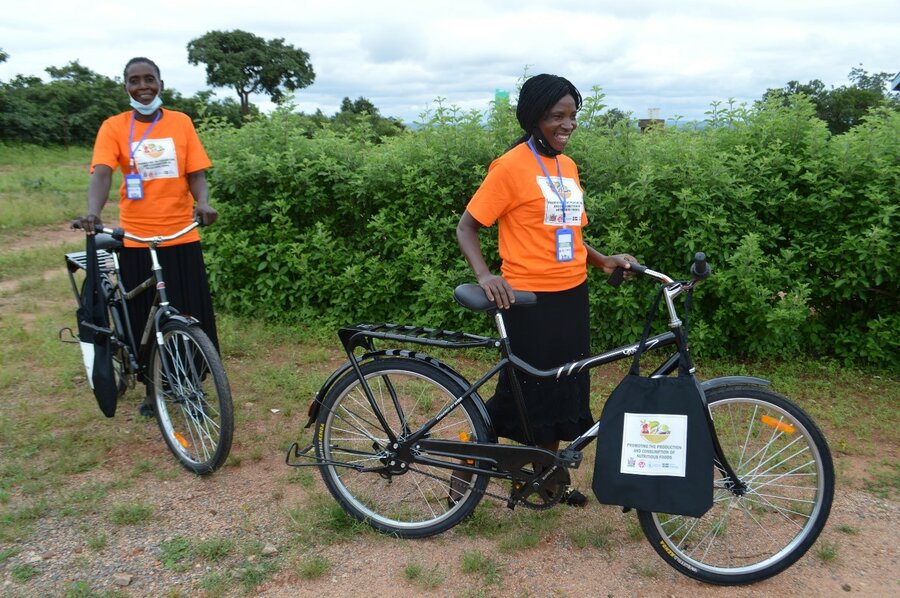
Clara, right, and a fellow community health volunteer set off to spread nutrition messages in Mazabuka.
This transportation and training is vital — because of poor nutrition, for every 1,000 births 63 children die.
“I’m so happy to receive this bike. It will help me conduct more household visits during the day and reach people further away from my home. Transport will no longer be an issue – I can travel further distances in shorter times,” says Clara.
For the past decade, Clara has been passing on the knowledge she learned from U.N. World Food Programme and government training to build a healthier society. In the weekly nutrition meetings, Clara shares knowledge on good feeding practices, provides cooking demonstrations to improve food preparation for infants and encourages people to grow and consume a diverse range of locally available food, including pumpkin leaves and cowpeas.
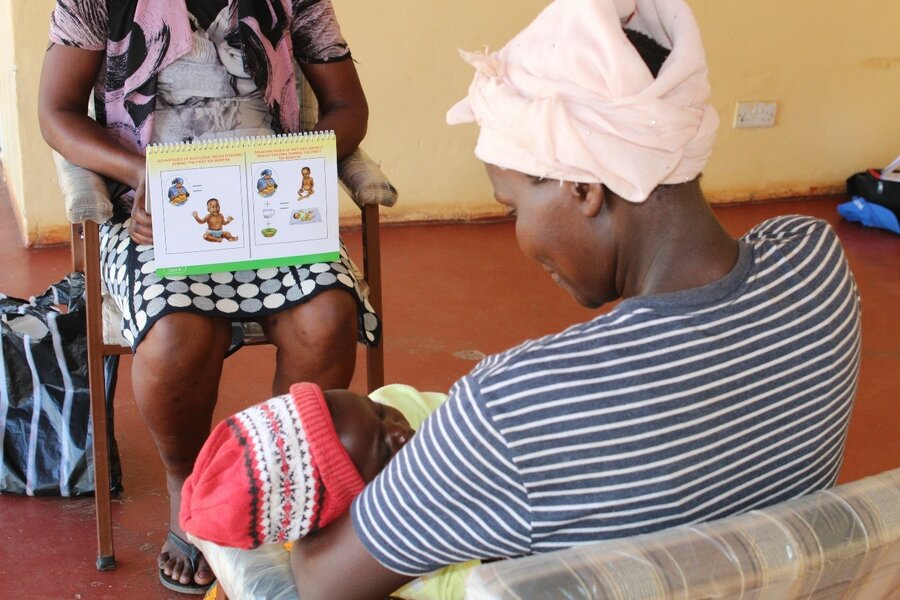
A community health volunteer shares information with a new mother on the advantages of exclusive breastfeeding for the first six months.
Today, she is reaching around 140 mothers, adolescent girls and appointed guardians.
“My first-born daughter was malnourished and suffered,” says Clara. “She was very sick, and I had to take her to the hospital for help. I wanted to learn more about nutrition and good feeding practices to stop this from happening again and help other families.”
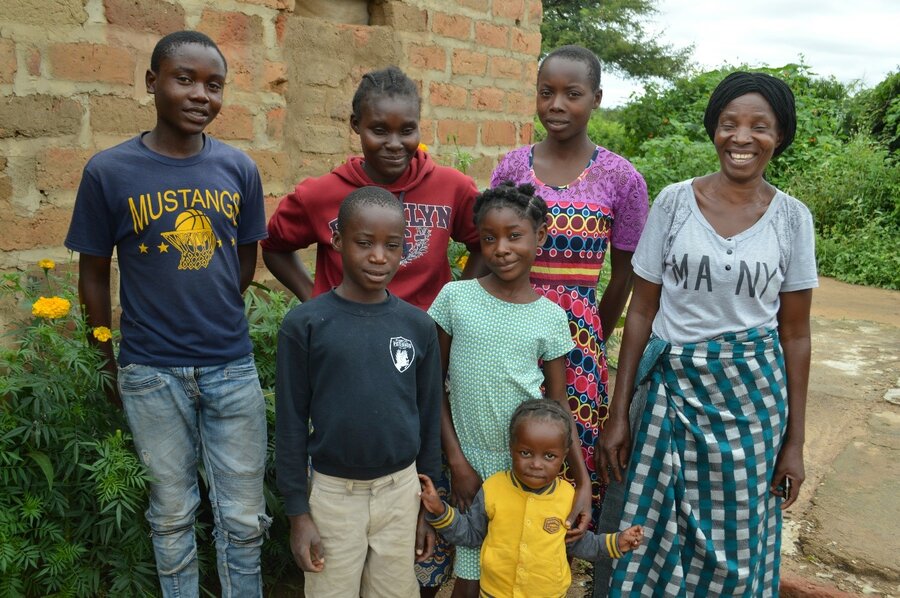
A single mother, Clara lives with her five children and granddaughter.
“As a caregiver myself, mothers listen to me and make positive changes for their children’s future,” says Clara. “I encourage more women to take up leadership roles as community health volunteers.”
While conducting door-to-door visits, Clara sometimes meets infants and children suffering from malnutrition. She refers them to her local hospital – Mugoto Health Clinic – for professional care.
“I met a one-and-a-half-year-old infant who was very malnourished and unwell. She was only being fed porridge and groundnuts as her parents did not know about nutrition. I advised them to start feeding her different types of locally available food and take her to the local health clinic,” says Clara.
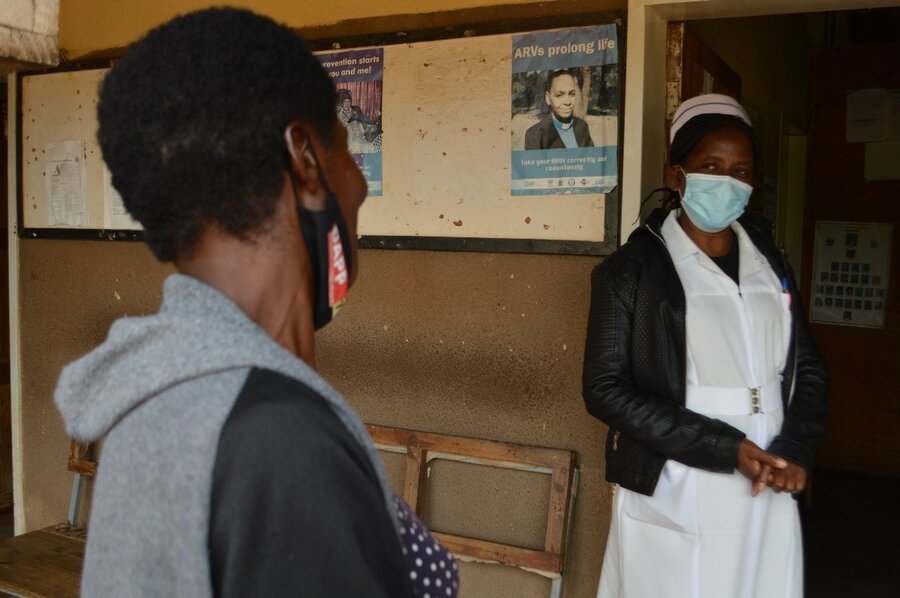
Clara meets with midwife Ireen at the Mugoto Health Clinic.
Ireen Chitombwe, 43, is a midwife and nurse at Mugoto Health Clinic who cared for the baby and praises Clara’s work helping to make cases of malnutrition visible — these might otherwise go undetected with a long-term impact on children’s health and prospects.
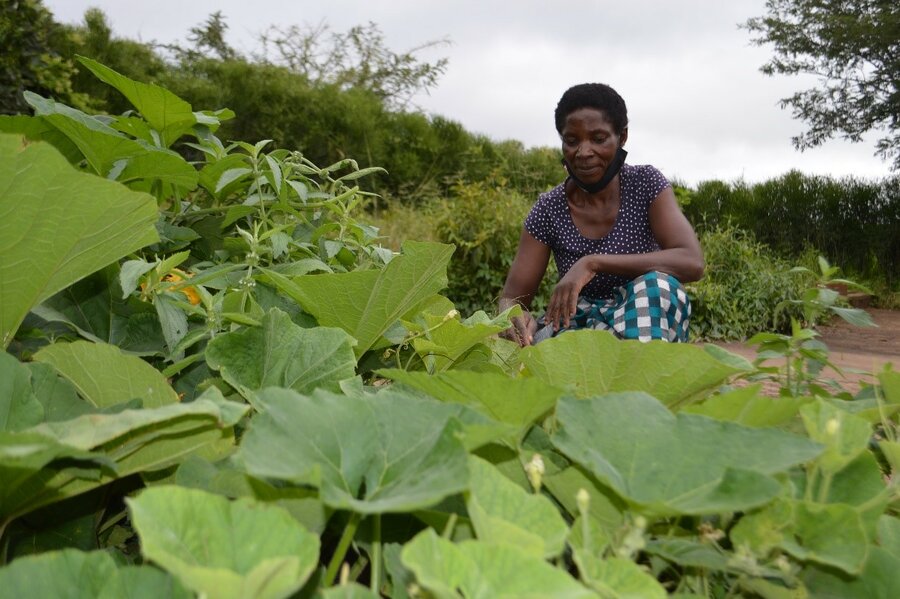
Clara diversifies her farm to improve her own family’s nutrition.
“I’ve seen that our work can make such a difference. Children in my village are healthier now, they eat a wider range of locally available food and mothers exclusively breastfeed children under the age of six months,” Clara said.
“I can’t wait to get out there and educate more people on the importance of nutrition,” she added. “With the coronavirus, I’m even more motivated. Eating well will protect my village against the virus and help them to spend less on hospital fees.”




